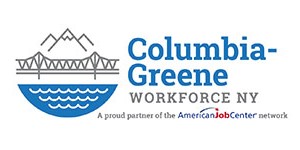Mastering the Art of Interviewing: Essential Interviewing Skills
Introduction
Interviews are a critical component of the job search process, and your performance in an interview can make or break your chances of landing the job you desire. Whether you’re a recent graduate, a seasoned professional, or someone in the midst of a career change, honing your interviewing skills is essential. In this blog post, we’ll explore the key interviewing skills you need to excel in interviews and increase your chances of securing the job of your dreams.
Preparation is Key
Before you even step foot into an interview, thorough preparation is essential. This involves researching the company, understanding the role, and practicing your responses to common interview questions. Here’s what you can do:
a. Company research: Study the company’s website, mission, values, products, and recent news. Understanding the company’s culture and history will help you tailor your answers to align with their values.
b. Role understanding: Familiarize yourself with the job description and the skills and qualifications required. Be ready to discuss how your experience and abilities make you a strong fit for the role.
c. Practice, practice, practice: Prepare answers to common interview questions, like “Tell me about yourself,” “Why should we hire you?” and “What’s your greatest weakness?” Practice with a friend or use a mirror to work on your delivery and confidence.
Effective Communication
Effective communication is a crucial interviewing skill. It’s not just about what you say, but how you say it. Pay attention to the following:
a. Verbal communication: Speak clearly, confidently, and at a moderate pace. Avoid jargon and jumbled sentences. Use proper grammar and avoid filler words like “um” and “uh.”
b. Non-verbal cues: Your body language, facial expressions, and eye contact are just as important as your words. Maintain good posture, offer a firm handshake, and make eye contact to convey confidence and professionalism.
c. Active listening: Show the interviewer that you’re engaged by listening carefully and responding thoughtfully to their questions. Don’t interrupt, and ask for clarification if needed.
Tell Your Story
An effective interview is your chance to tell your story, and your resume is just the beginning. Use specific examples from your professional experience to illustrate your skills and achievements. Here’s how:
a. STAR method: Situation, Task, Action, Result – use this framework to answer behavioral questions. Describe the situation or problem, explain your role, detail the actions you took, and highlight the results or outcomes.
b. Quantify your achievements: Whenever possible, use data to support your claims. For example, “I increased sales by 20% in six months” is more impactful than “I improved sales.”
Handling Tough Questions
Interviewers may ask challenging or unexpected questions to assess your problem-solving skills and adaptability. Here’s how to tackle them:
a. Stay calm: Take a deep breath and collect your thoughts before responding to a tough question. It’s okay to ask for a moment to think.
b. Stay positive: Even when discussing a challenging situation, emphasize what you learned from the experience and how it made you a better professional.
c. Be honest: If you don’t know the answer to a technical question, admit it, but express your willingness to learn and adapt.
Conclusion
Mastering the art of interviewing is a skill that can significantly improve your job prospects. Through meticulous preparation, effective communication, storytelling, and the ability to handle tough questions, you can increase your chances of impressing interviewers and securing the job you desire. Remember, practice makes perfect, so take every opportunity to refine your interviewing skills, and success will follow. Good luck in your job search!

